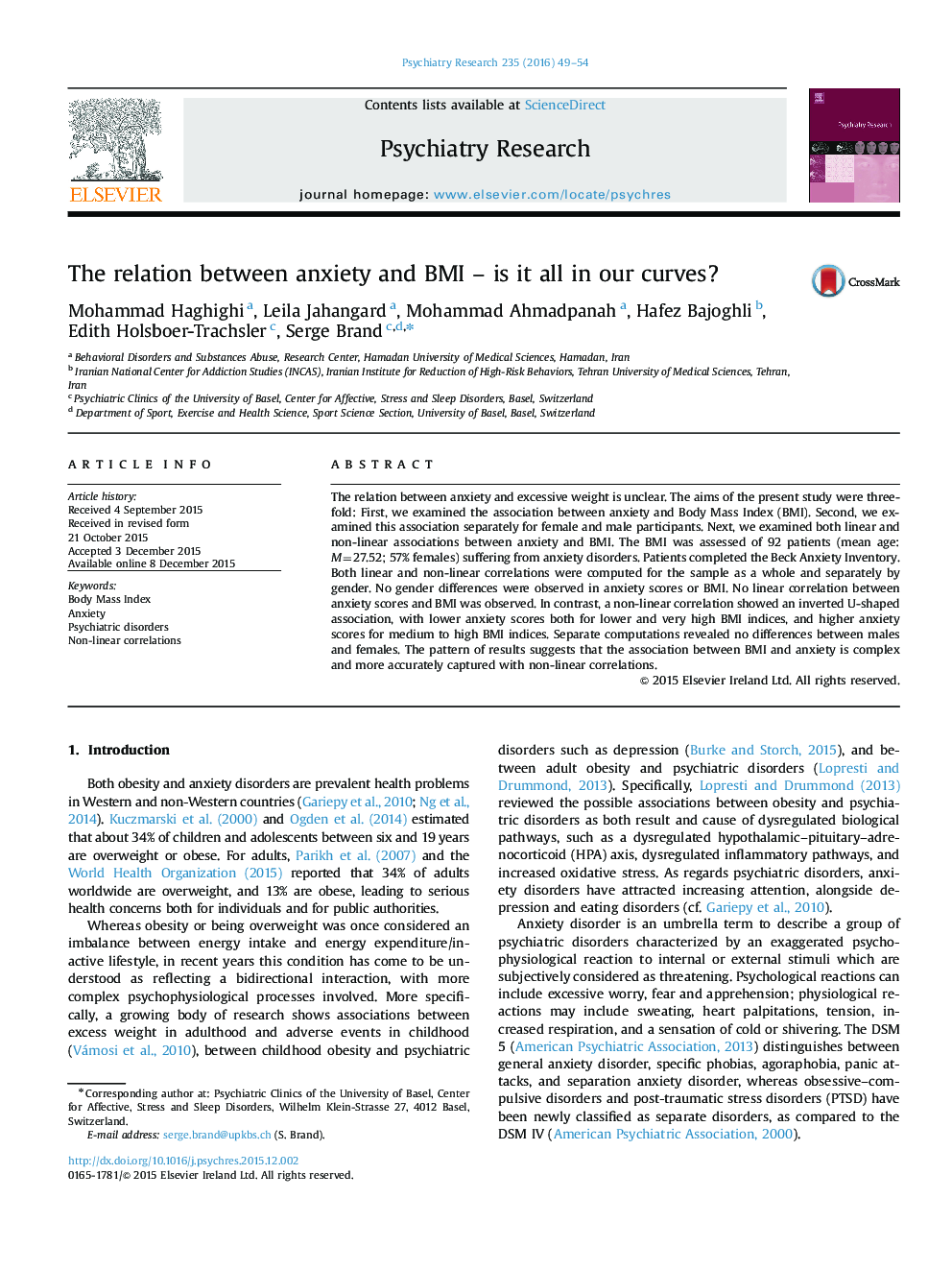| کد مقاله | کد نشریه | سال انتشار | مقاله انگلیسی | نسخه تمام متن |
|---|---|---|---|---|
| 333198 | 545907 | 2016 | 6 صفحه PDF | دانلود رایگان |
• We assessed 92 patients suffering from anxiety disorders and measured the BMI.
• Against expectations, no gender differences were observed.
• BMI and anxiety scores were associated in an inverted U-shape.
• Both low and high BMI were associated with lower anxiety scores.
• The non-linear association might blur associations between BMI and anxiety.
The relation between anxiety and excessive weight is unclear. The aims of the present study were three-fold: First, we examined the association between anxiety and Body Mass Index (BMI). Second, we examined this association separately for female and male participants. Next, we examined both linear and non-linear associations between anxiety and BMI. The BMI was assessed of 92 patients (mean age: M=27.52; 57% females) suffering from anxiety disorders. Patients completed the Beck Anxiety Inventory. Both linear and non-linear correlations were computed for the sample as a whole and separately by gender. No gender differences were observed in anxiety scores or BMI. No linear correlation between anxiety scores and BMI was observed. In contrast, a non-linear correlation showed an inverted U-shaped association, with lower anxiety scores both for lower and very high BMI indices, and higher anxiety scores for medium to high BMI indices. Separate computations revealed no differences between males and females. The pattern of results suggests that the association between BMI and anxiety is complex and more accurately captured with non-linear correlations.
Journal: Psychiatry Research - Volume 235, 30 January 2016, Pages 49–54
